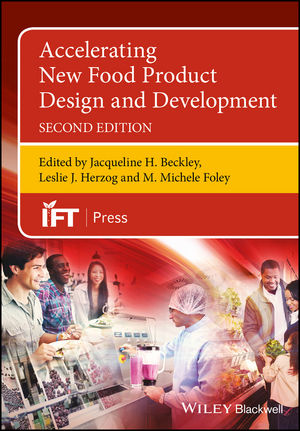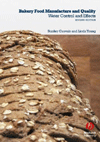DSM Food Specialties has won the 2010 Frost & Sullivan award for
Product Differentiation Excellence with its unique solution for
acrylamide mitigation –PreventASe.
DSM Food Specialties has won the 2010 Frost & Sullivan award for Product Differentiation Excellence with its unique solution for acrylamide mitigation –PreventASe. An enzyme preparation,PreventASeis recognized the best-in-class to mitigate the formation of acrylamide in bread, biscuits and extruded snacks by as much as 90%. DSM Food Specialties differentiated its product through the quality, complexity and customized range ofPreventASe.
The Frost & Sullivan Award for Product Differentiation Excellence, Enzyme Solutions for Acrylamide Reduction is based on Best Practices research to determine how best-in-class companies worldwide manage growth, innovation and leadership. This award recognizes the proven functionality ofPreventASeand
underlines DSM Food Specialties’ position as a leading innovator of
enzymes to the food industry. DSM Food Specialties leads the way in the market by proactively developing new applications forPreventASeand customizing it to match the needs of different markets.
“This award acknowledges our understanding and commitment to the needs of the global food industry,” says Mario Pires, business industry director baking and beverages ingredients for DSM Food Specialties, based in The Netherlands. “The harmful potential of acrylamide is now widely acknowledged and finding an effective solution is crucial for food manufacturers.PreventASeis our response to this issue. We are working in partnership with food manufacturers worldwide to minimize consumers’ exposure to dietary acrylamide. With thePreventASeportfolio already extended to include solutions for most bakery applications, we are continuing to research further possibilities for a wider product range.”
Over the last years, acrylamide has become a serious issue for food processors worldwide. In spring this year, the Joint Expert Committee on Food Additives reconfirmed that the margins of exposure of acrylamide intake indicate a human health concern, which is echoed by the FDA’s assessment of acrylamide as a suspected toxic substance.
Related Articles
Related Products
See More ProductsSee More ProductsEvents
View AllSubmit An Event-
June 14, 2012 Building a Regulatory Strategy for Marketing Food Supplements in Europe: The key steps to a successful product launch
-
May 9, 2012 Food Technology and Innovation Forum 2012
×
Get our new eMagazine delivered to your inbox every month.
Stay in the know on the latest snack and bakery industry trends.
SUBSCRIBE TODAY!Copyright ©2024. All Rights Reserved BNP Media.
Design, CMS, Hosting & Web Development :: ePublishing





